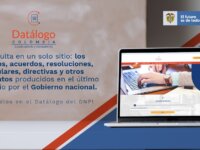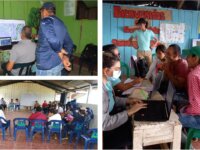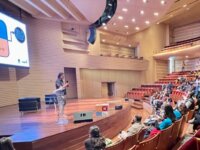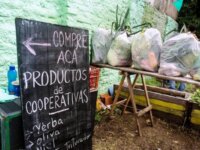PAZOS is an innovative alternative to dealing with the historically high juvenile homicide rate by using public force. It was developed because the city of Palmira was among the most dangerous cities in Colombia and the world; today we have the lowest homicide rate in the city's history. We attribute this achievement to an articulated and focused intervention, oriented to the dual functionality of targeting public spending and generating opportunities through policymaking.
Country: Colombia
The initiative was developed in response to the dispersion of sources for consulting information on the documents produced by the national government. The solution, a data catalog (datalog), generates an institutional memory of open consultation on different aspects that the outgoing government delivers to the incoming one. The tool is innovative in applying machine learning technologies to process, organize and present a large volume of documentary information in an agile and simple way.
Bogotá-Colombia is a city co-administered by 20 local mayor's offices. In the past, it was on the Mayor's power to allocate resources without necessarily go through public or community consultations, which is why several city infrastructures emerged without responding to specific needs nor recognizing the diversity in the population. With the Civic Laboratories of participatory budgeting, the community began to engage on where to decide where to invest their local budgets.
Blockchain is transforming the world and we created the first pilot to experiment with this technology, promoting this transformation in the Colombian State entities making it more efficient, transparent and agile. We seek to accompany and promote projects that generate better services and processes within the entities; learning and documenting the entire process.
Several land areas in Colombia lack of formal registry and documents as a consequence of the absence of territorial information and the aftermath effects of the armed conflict. Through the intensive use of new technologies and innovative methodologies, the problem of characterization of vacant areas was addressed by using novel methods to consolidate land data and information, benefiting the farmers of the area.
Public innovation Labs have been at the forefront of the transformation of public innovation ecosystems in different countries and cities. However, they are knowingly sensitive to changes in public administrations and to political decisions. Our Spider strategy (Araña) seeks to strengthen and give sustainability over time to public innovation based on the creation of networks and ecosystems and the non-exclusive dependence on innovation units or Labs, thus diminishing the related aforesaid…
Bogotá Local was developed to address some of effects of the economic crisis caused by the pandemic to low-income and vulnerable families in Bogota. This is a reactive response in the short term oriented to recovery and that, in the medium and long run, will consolidate as part of the so-called "people's economy" (economía popular). It is an innovation deployed by the Secretariat of the Government and the Bogota Mayor's office to, principally, serve women, young populations and the elderly.
The IDT is a multi-stakeholder dialogue methodology whose objective is to generate spaces for collaborative co-creation to design public policy proposals for a locally development challenge.
The IDT Yumbo worked on a challenge prioritized by citizens. The causes were identified and solutions were proposed, creating a policy prototype. Through advocacy platforms, the prototype was presented to the local and regional government to incorporate the proposal as part of the Municipal policymaking.
Nationwide the unpaid care burden falls disproportionately on women, reaching alarming proportions in the city of Bogotá: 30% of the city's female population are full-time unpaid caregivers, of which 90% are low-income; 33% lack time for self-care; and 70% hold only primary school. To mitigate undesired effects, and that the burden of the home-care increases the vulnerability of (already) neglected women, the city of Bogotá has recently launched the "Care Block" initiative to centralize key…
Those who are now teenagers will be in charge of resolving complex problems in 2050, in particular those related to the climate crisis and its impact on cities. They will need to be equipped with soft skills to develop generosity, creativity or teamwork; unfortunately, traditional schools are not prepared for this task yet. The Mayor's office from Suba, Bogotá, in alliance with te Bogotá Lab iBO and with the World Bank, developed an experiment to test a gamified program that uses ICT to…









